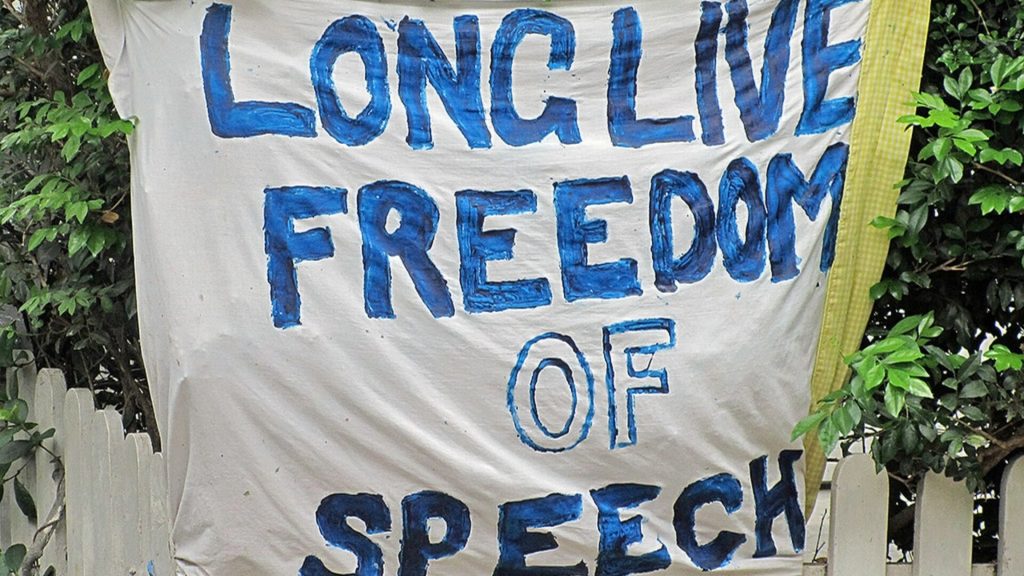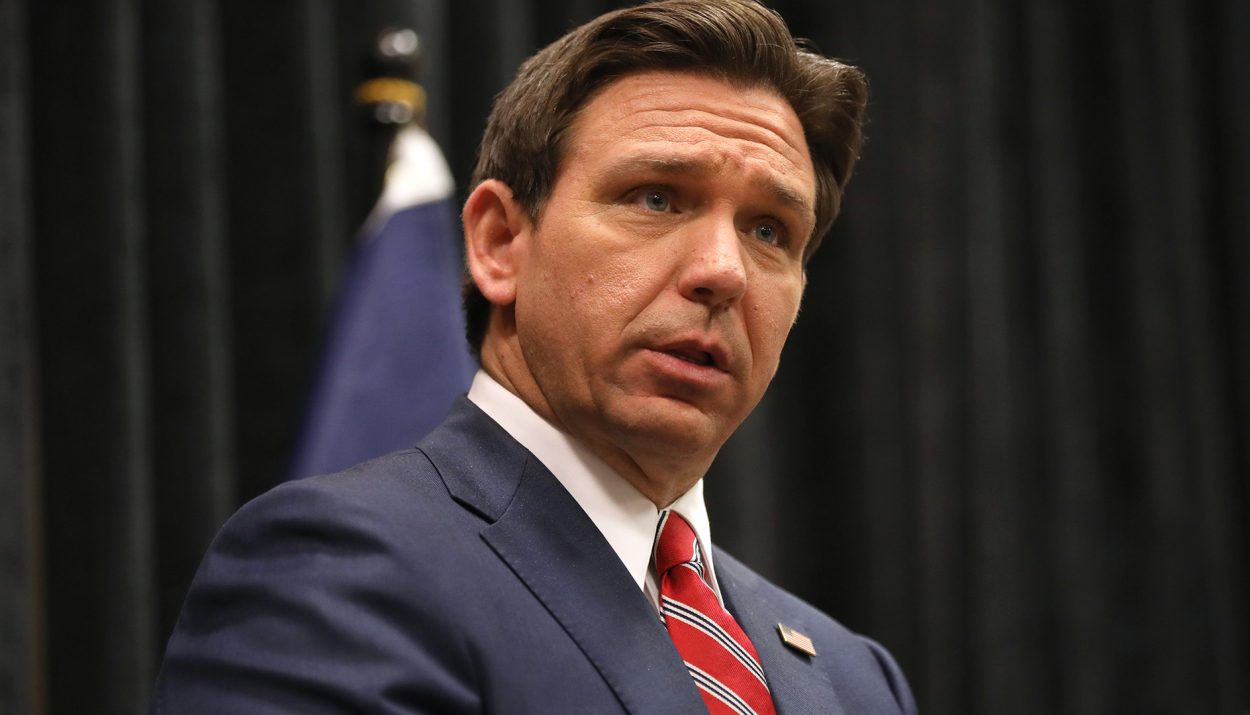Political correctness, or “Wokeness,” is a huge deal for some people in the US, and Florida’s governor has attempted to curtail the marketing of this ideology via its “Stop Woke Act.” A Federal appeals court stopped Ron De Santis’ Stop Woke Act on account of it violating the First Amendment. Let’s see why.
“Wokeness” Has Become Unbearable
Originally designed as a way to look at the world through the lens of the oppressed, “wokeness” has taken on a whole new, unsettling demeanor over the last few years.

Instead of seeking to listen and give a voice to others who are underrepresented, many of its proponents use “wokeness” as a way to censor and malign those who disagree with them.
Conservatives See This As Dangerous
As “wokeness” seems to be heavily influenced by liberal and progressive beliefs, it has obviously rubbed Republicans the wrong way. Many of them see “wokeness” as a threat.

Among the GOP members who have been trying to do something about the spread of this ideology is Florida Governor Ron De Santis. He proposed passing a “Stop Woke Act” recently that caused uproar from some individuals.
Stopping Diversity and Inclusion Teaching
The aims of the Stop Woke Act, as introduced by De Santis, would see private companies being unable to teach inclusion and diversity in their training sessions behind closed doors.

According to De Santis, teaching diversity and inclusion goes against what he would expect from a private company and spreads these ideas into the public sphere, where they are unwanted.
Exceeding The Reach Of the Governor
A three-judge panel from the US Court of Appeals judged that De Santis’ aim of trying to outlaw inclusion and diversity rhetoric, especially for a private company’s employee training.

The panel found that the Stop Woke Act went against the First Amendment protections of free speech and expression in its attempt to regulate workplace training on sex, color, race, and national origin.
Ideas Deemed As Offensive
The court further clarified that by limiting its scope to ideas the governor deemed as offensive, the act targets speech based on its content, which goes against the protections guaranteed by the First Amendment to the Constitution.

Since the act bans only speech that endorses those ideas, it creates inequality, penalizing certain viewpoints. The First Amendment ensures that this should never happen in the US.
Rolling Back An Approved Act
De Santis and the Florida Legislature approved the Stop Woke Act in March 2022. Now that the court has ruled the act violates First Amendment rights, they must repeal it.

De Santis used the act and his feelings about overwhelming ideological conditioning as a talking point during his 2024 bid for the Republican candidacy. He has since dropped out of the race.
What Does the Act Actually Say?
Also known as the “Individual Freedom Measure,” the Stop Woke Act stops training in private companies and public schools, colleges, and universities that may lead someone to feel guilty about the historic actions of their race or gender.

Violating the act is punishable under the state’s anti-discrimination laws. However, the appeal didn’t cover all the places the law could be applied, instead focusing on a specific situation.
No Stop Woke Act for Workplaces
When the act was signed into law, several Florida companies complained. Ben and Jerry’s in Primo stated that they saw it as a move to stop training about intersectionality, oppression, and systemic racism.

Companies such as these took the state to court, arguing that the act went against the provisions of the First Amendment and served as an example of government meddling in business affairs.
A Tool To Stand Up Against Discrimination
When De Santis proposed the law, he stated it was a tool for employees who felt shamed to stand up against discrimination. He said that Florida would not bow to a far-left political agenda.

Florida has seen a shift towards more conservative politics, with companies struggling to fight against policies that they deem oppressive and against their business morality.
A Ban on Conduct, Not Speech
At the appeals court, De Santis and the state’s lawyers argued that the act addressed conduct and that these companies required employees to attend training sessions.

The state’s lawyers argued that they had no problem with whatever the company said at these training sessions, only that they were concerned that employers forced their employees to attend them.
Judges Refuse To See Florida’s Point of View
Judge Britt C. Grant didn’t see it that way and condemned the state’s lawyers for trying to repackage the law in a way that the appeals court would find more attractive.

The judge stated that even if the appeals court saw the act in the way that the state’s lawyers colored it, it would still be doomed since its approach crosses a hard line that curtails free speech and action.
A Major Victory For Free Speech
The companies leading the charge to get the law repealed called the ruling a significant victory for free speech in the workplace. The lawyers for these companies stated that the law showed the First Amendment was alive and well in the US.

According to the lawyers, the state has no right to censor or curtail what business owners have to say simply because the government doesn’t like what they’re saying. However, employers are responsible for their employees; indoctrination is not part of that responsibility.
Is It A Win For The People?
Corporate interests have always had reasons for whatever they do, many of which are based on their bottom line. However, in Florida, many companies are becoming politically active even if their decisions go against their profit margins.

The average Floridian probably won’t be impacted by the Stop Woke Act. Even so, it sets a dangerous precedent.
Companies Will Love This
Many of these businesses get funding for expansion based on their ESG score or how “business woke” they are. Florida’s law would force these companies to change their training, thereby losing the funding from significant corporate interests.

Investors who depend on the ESG score to invest would avoid companies that don’t train their employees according to the ESG guidelines (which include “woke” ideology). It raises the question of whether this is a win for free speech or a win for companies who want more investor money.






